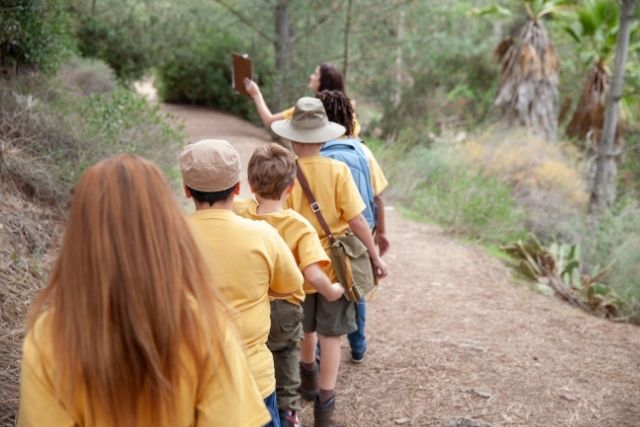Summer Camp Anxiety: 13 Ways to Help Nervous Kids Have Fun
Summer camp photos often show kids having fun in the sun, playing sports, and swimming, without showing any signs of worry. However, it’s normal for kids to feel both excited and a bit anxious about going to camp and being away from home for a while. Especially for those experiencing summer camp anxiety, this can be a significant challenge. While many kids feel more excited than anxious, some might feel so worried that it interferes with their ability to enjoy the camp.

Summer camps help kids develop important skills like resilience, self-reliance, and the ability to get along with others. Being at camp, away from home and with other kids, helps them learn to socialize, become more independent, and separate from their parents in a healthy way. Through camp activities, they gain confidence by showing they can master new skills. Kids are usually ready for sleep-away camp between the ages of 10 and 12, but this can vary based on their maturity, experiences, and personality.
Strategies to Reduce Summer Camp Anxiety
The best way to help your child with nerves before camp is to recognize her feelings and give her ways to calm them. Dealing with summer camp anxiety can be challenging for many kids. Here are 13 ways to help them overcome this and have fun.
- Let your child have a say in their camp experience. Help them choose the camp and learn about its environment and activities so they know what to expect.
- Get your child excited for camp by shopping for new gear together and talking about the fun things she can look forward to at camp.
- Don’t dwell on what might make children anxious. Instead of asking specific questions like, “Are you nervous about horseback riding?” use more general ones like, “How are you feeling about the horses?”
- Don’t dismiss her worries with quick reassurances like “There’s nothing to worry about!” or “Everyone loves camp!” as this might make her feel worse. Instead, show understanding and acknowledge her concerns.
- When talking about summer camp, concentrate on specific details rather than vague worries, like being away from home. Discuss things like what the cabins are like, what meals are served in the lodge, or the campfire activities.
- Talk to your child about your own experiences away from home. Share positive stories and show you’re open to discussing what they’ll encounter at camp, like trying new foods, sleeping in bunk beds, making friends with cabin-mates, or dealing with bugs.
- Practice with “rehearsals.” Having a sleepover or spending a night at Grandma’s can help your child get used to being away from home.
- Don’t stay too long at the bus stop. Keep your goodbyes brief because lingering can make feelings more complicated.
- Make it simple for your child to stay in touch: Include envelopes and stamps in their pack, plan times for phone calls or emails if the camp allows them, and explain to your child how easy it will be to communicate.
- Set a purpose for each letter or conversation, encouraging your child to think about how she’s adapting to camp instead of how much she wants to come home.
- Try not to show your own anxiety; your child can sense your feelings even if you don’t say them out loud. Instead, focus on expressing your confidence in your child and their summer camp experience.
- Help your child make practical plans with specific goals, like making friends, toasting the perfect marshmallow, or passing a swimming test. Achieving these goals can give your child a sense of accomplishment and help distract from any anxiety.
- If your child has mental health or learning challenges, be open about them. Tell the camp staff and counselors about any conditions that might affect her stay, such as bedwetting or a fear of water. Also, make sure your child knows that the counselors are there to help with anything, big or small.
Are you ready to send your child to camp?
If you’re worried about it, remember that the fee for a good camp covers more than just arts and crafts. It also includes a team of professionals and counselors dedicated to helping your child learn and grow socially.
Summer camp offers a special opportunity for your child to mingle with many peers and learn social skills in a more relaxed setting than school. It’s a chance for him to make his own choices and become more independent. While you might be worried and want to help, the best support you can provide is to let him manage his own experience.
When should you be concerned about your child’s anxiety before camp?
It could be a problem if she shows physical signs of fear such as cold hands, feeling queasy, dizzy, having headaches, or feeling nervous in her stomach. If she cries a lot, hides, or has nightmares about being away from you, or worries with questions like, “What if something happens to me or you when I’m away?” these could be signs that her anxiety is more serious. If her anxiety stops her from doing her usual activities, it might be time to talk to a mental health professional.